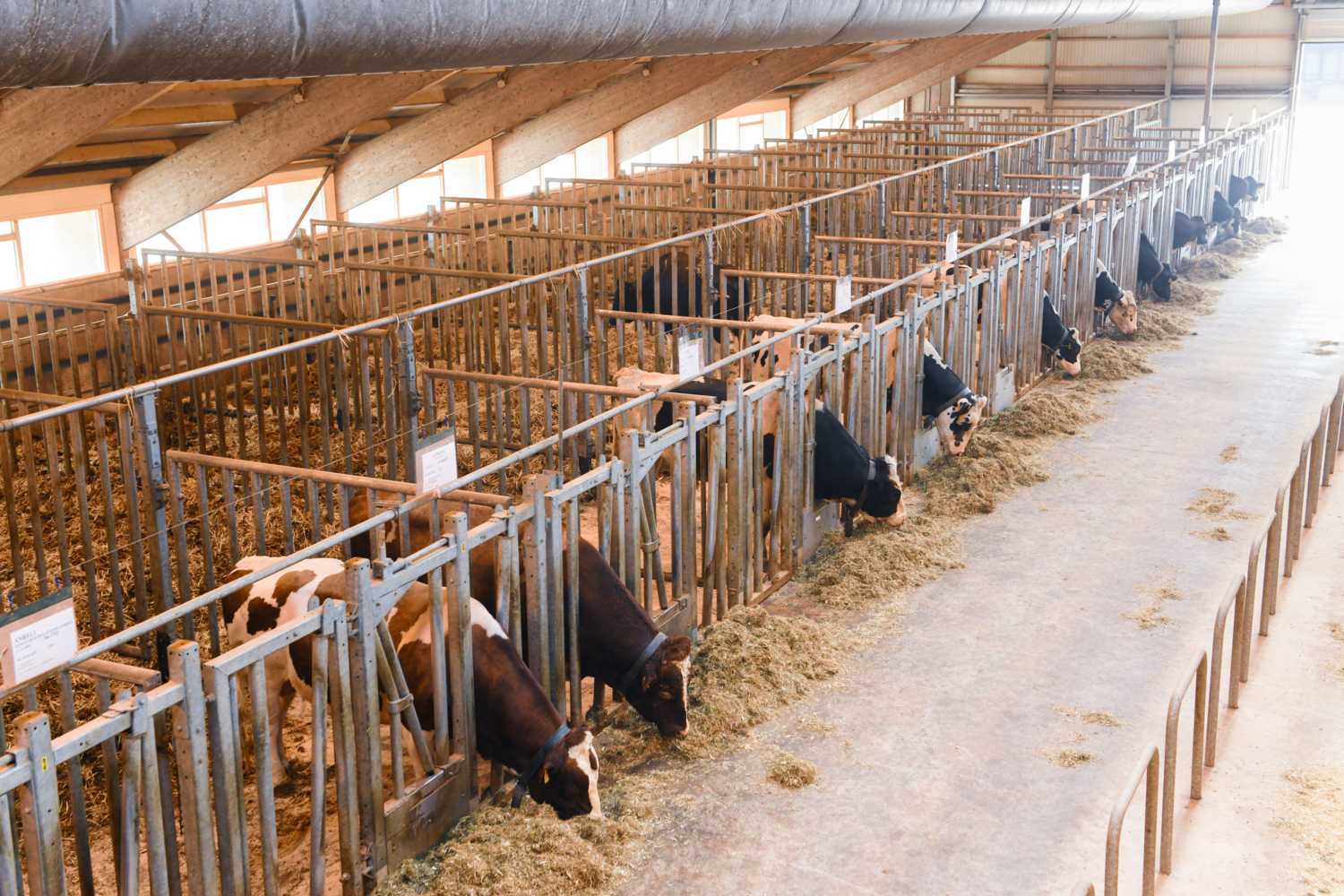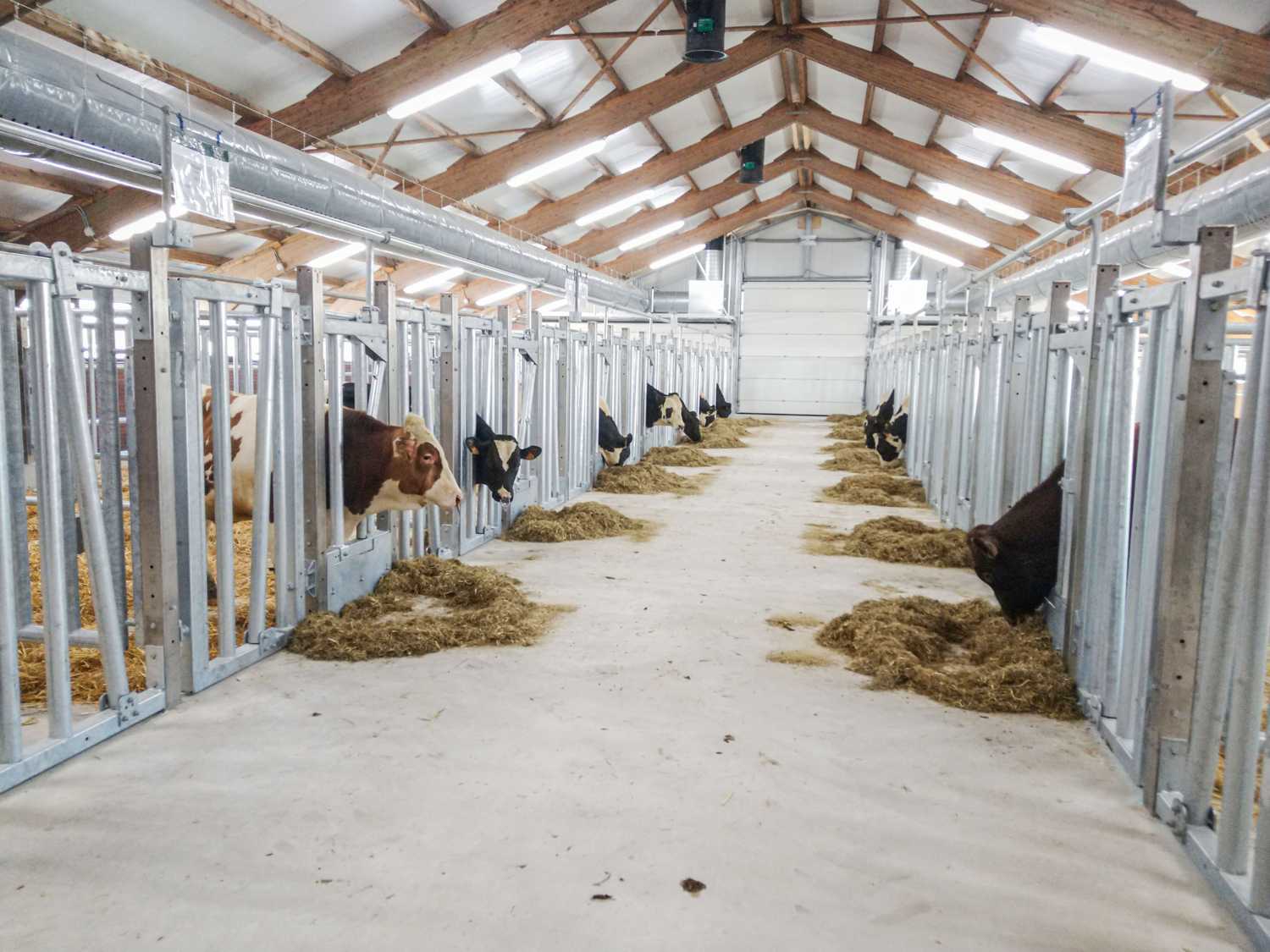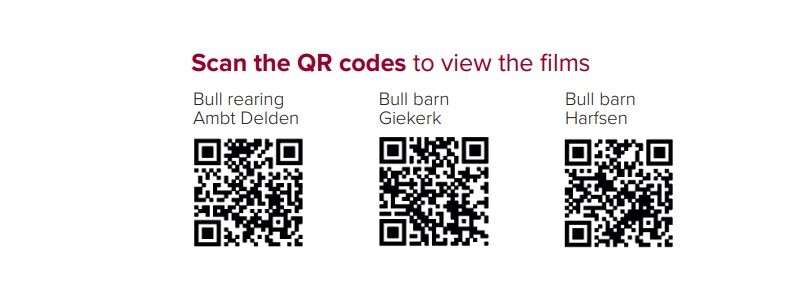A Friesian veterinarian introduced artificial insemination in the Netherlands in the 1930s. This was prompted by the fact that farmers were struggling with infertile cows as a result of venereal diseases. These infections were spread by the stud bulls servicing numerous cows. By practicing hygiene, the Artificial Insemination (AI) pioneer was able to reduce sexually transmitted diseases and infections, resulting in rapid growth of his customer base. Artificial insemination is now an integral part of dairy farming. Working hygienically is still a key to success. “Practicing good biosecurity, which means taking measures to prevent the introduction and spread of animal diseases, is considered to be of paramount importance at CRV,” says CRV vet Anja de Bont. “With strict hygiene requirements and clear working protocols, we protect our bulls’ health and offer customers all over the world the highest guarantees for the veterinary safety of CRV semen,” she states.
Biosecurity protocols for safe semen

CRV enforces strict biosecurity protocols for its bull barns. “This is how we protect our animals’ health and offer customers all over the world the highest guarantees for the veterinary safety of semen,” says CRV veterinarian Anja de Bont. CRV ensures biosecurity worldwide by working with strict protocols and responding to what is needed locally. This article is about how we work in the Netherlands.
Elite farms with a high health status
Good biosecurity starts even before young bulls are transported to the rearing barns of CRV. A large number of these animals are born on the ‘Elite’ farms, where embryos from the breeding program are implanted into recipient cows. “These farms have a high health status,” says De Bont. “This means that the herds are certified free from IBR, BVD and leptospirosis, are not suspected of having neosporosis and salmonella and have status A for paratuberculosis (Johne’s disease).
The calves are also tested for various diseases, to ensure they do not bring any animal diseases with them to our rearing facility.” As well as bull calves from Elite farms, CRV procures young bulls from private breeders. “Blood is drawn from these calves at the farms of origin and the calves can only be transported if all results are negative,” the vet explains. On arrival at the rearing barns, the calves are re-tested and they remain in quarantine for the initial 21 days. To minimize the risk of disease being spread, the barns are divided into strictly separated compartments. The animal handlers wash their hands and change work clothes when moving from one compartment to another. An ‘all-in-all-out system’ applies to each compartment.

Barns closed to visitors
At an age of approximately nine months, the young bulls that have passed initial selection move to one of the semen collection centres in Giekerk or Harfsen. These locations are approved by the Netherlands Food and Consumer Product Safety Authority (NVWA) according to EU legislation, meaning they fulfil all veterinary requirements for international semen distribution. “Extensive blood testing is also carried out before bulls are moved from the rearing sites to the production sites,” says De Bont. “Transport also takes place in ‘virus-free’ vehicles, to prevent infection during transport. And on arrival at the production site, the young bulls first go into quarantine in a separate barn for at least thirty days.” They undergo a further veterinary check before moving to the semen collection centre. These checks are partially mandatory because of the EU legislation, and partially due to additional requirements by CRV and for semen export to non-EU countries. To prevent the introduction of pathogens, all CRV barns are closed to visitors. ‘People are only allowed into the barns if a visit is strictly necessary. But if they have visited another livestock farm during the previous two days, entering the facility is not allowed. Visitors who are allowed to come in have to shower and change their clothes,” De Bont explains. “Bull handlers may not keep cloven-hoofed animals at home or work at other livestock farms in addition to their work at CRV. Our own employees also shower on entry and wear company clothing,” the vet adds.

Overpressure climate control system
Materials are decontaminated in a UV cabinet before entering the bull barns. Strict safety requirements apply to materials that cannot undergo this process. For example, straw for bedding is kept outside the barn for at least 48 hours. “This way, we build in a safety margin should there be an outbreak of a contagious disease, such as Foot and Mouth disease in the area from where materials originated from,” De Bont explains. “Feed concentrate is also kept outside the barn in a silo for a number of days at least. And sufficient land surrounds our barns for grass to be grown to allow the animals’ roughage requirements to be amply met.” CRV’s barns are equipped with a overpressure climate control system. This means that the air pressure in the barns is higher than outside the barns. This to prevent disease-transmitting insects, such as biting midges infected with bluetongue virus, from entering the barn.

Semen also in quarantine
All of these precautions minimize the risk of infections being introduced. “But we nevertheless continue to closely monitor our bulls’ health status,” De Bont adds. “For example, we regularly take blood samples from bulls in our semen collection centres to test for a wide range of diseases,” she explains. Finally, any semen collected is quarantined for thirty days before being used. If the bulls remain healthy during this thirty-day period, and the blood results are negative, the semen is released. If during that period something is found to be wrong with the bull, the semen undergoes additional testing or it is destroyed. “Only when we are certain that the bull was healthy on the day of the semen collection, semen will be released for distribution,” the CRV vet emphasizes. “When it comes to biosecurity, we leave nothing to chance.” In the Netherlands and Flanders, AI gained momentum when livestock farmers discovered how effectively it prevented the spread of sexually transmitted diseases. With all the precautions taken by CRV in 2024, from a veterinary perspective, purchasing semen remains the safest method for cows to get pregnant.
Videos providing a unique view into the barns
To minimize the risk of introducing diseases, the doors of CRV’s bull barns are closed to visitors and bulls can only be viewed from behind glass. CRV has produced videos to allow the facilities to be viewed. These provide a unique view into the barns and also show CRV’s biosecurity measures.

